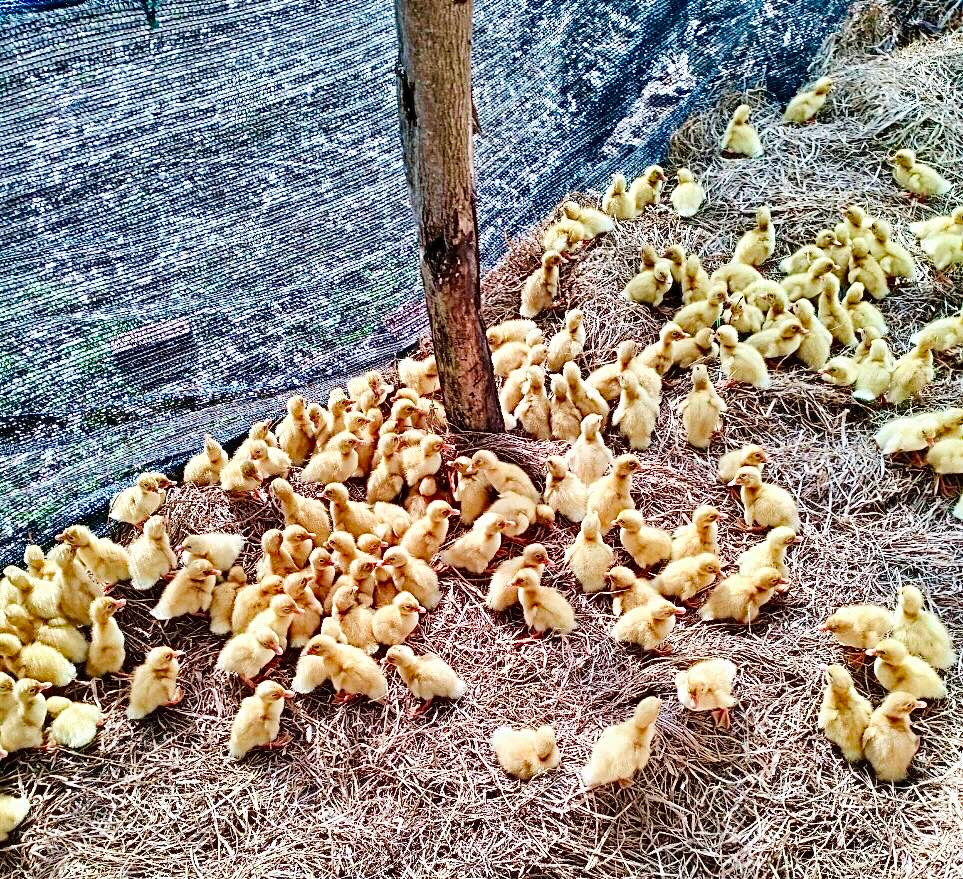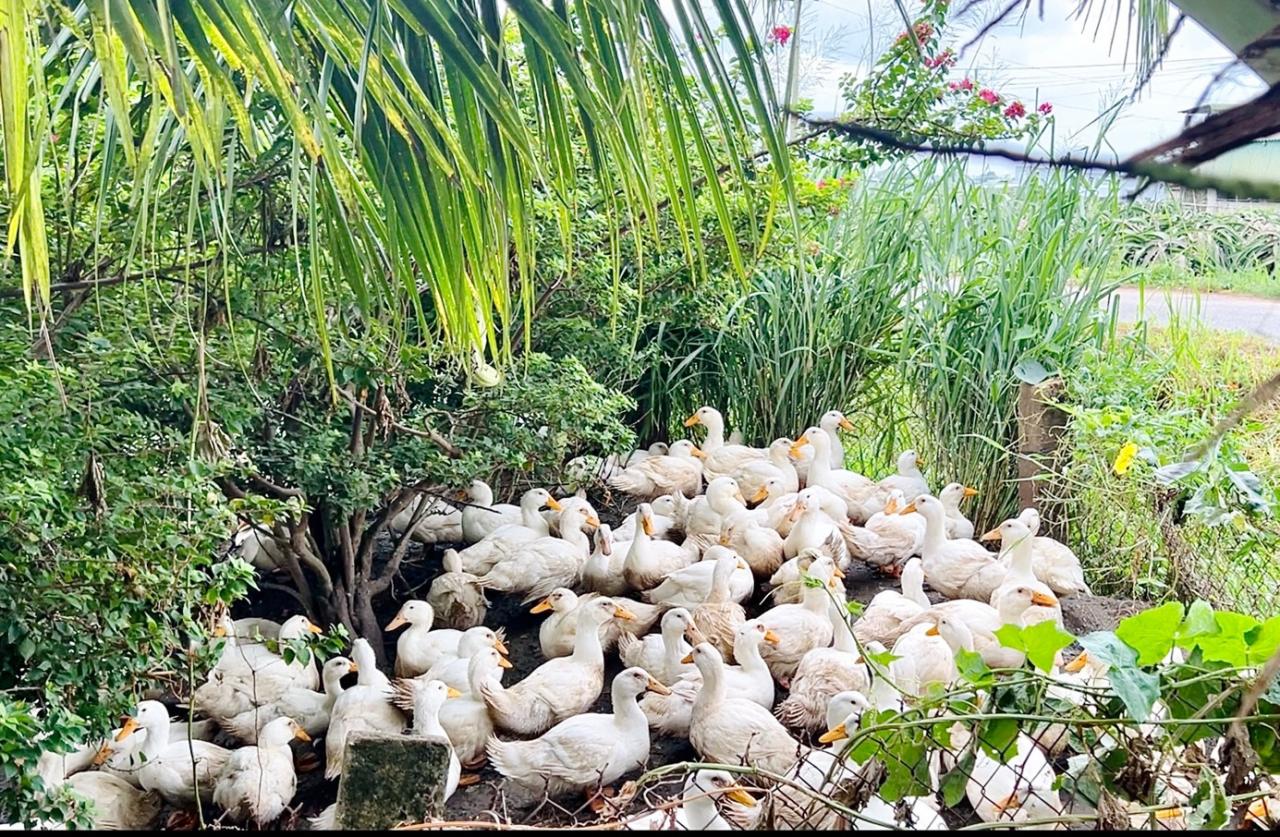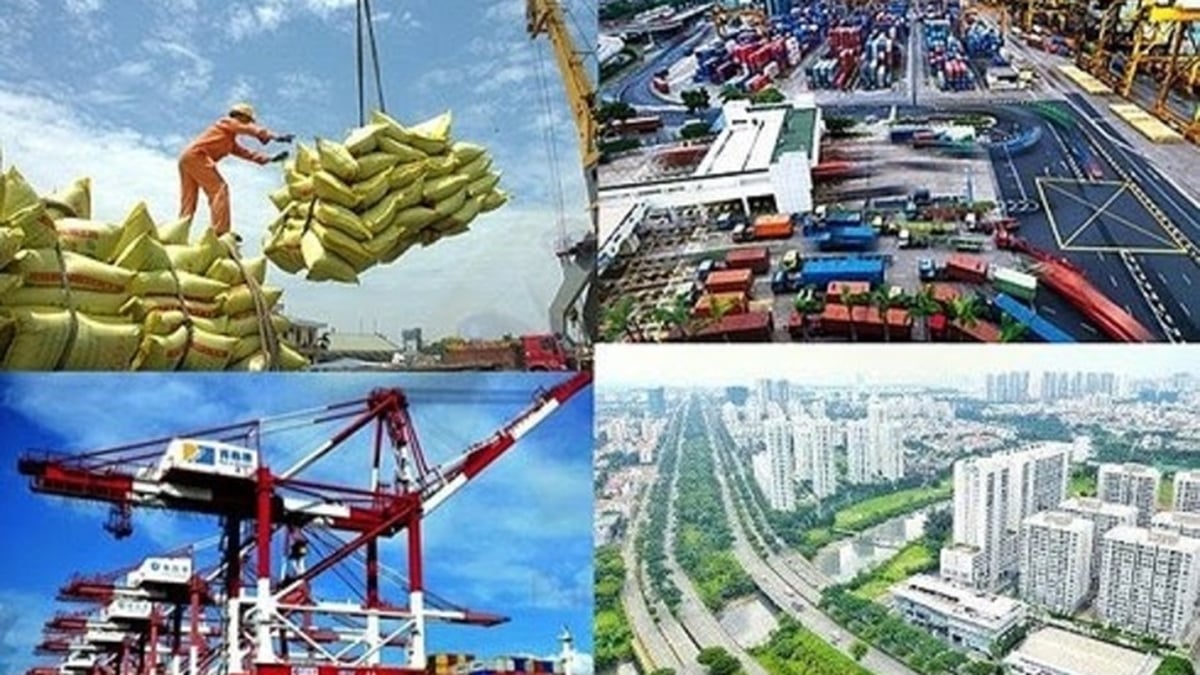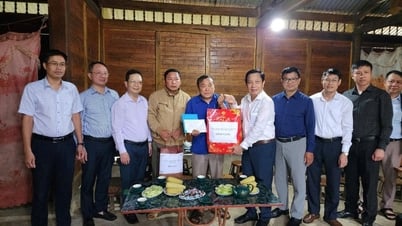In early May 2023, the model was implemented, with 1,000 ducklings, according to the State policy of supporting farmers with 50% of the breed and 40% of the materials. During the raising process, staff of the Town's Agricultural Technical and Service Center periodically monitored, checked, prevented diseases, recorded data and provided specific instructions on care and food quantification according to each stage of duck development for farmers. At 30 days old - the ducks are still small, in the ground cage, using heating lamps mainly at night. At this stage, the ducks grow quickly, reaching a weight of 1.9 kg/duck, with a survival rate of 97%; At 2 months old, the ducks begin to be trained to go out to the garden to exercise, have ventilation, creating conditions for the livestock to develop. During this time, the farmers flexibly build cages according to the terrain of the garden and pond, avoiding drafts and rain. Most importantly, the raising process must ensure the hygiene of the barn by disinfecting, sterilizing and using veterinary medicines and vaccines periodically and promptly according to each manifestation of the ducks.

Ms. Nguyen Thi Phu - Hiep Thanh village, Tan Hai commune, who directly takes care of the livestock, said: "Previously, I raised striped ducks (grass ducks). Although they are more resistant to disease, the ducks are light. With the same raising time, about 55 - 60 days for sale, while striped ducks only reach 2.5 kg/bird, the average weight of super meat ducks can reach 3.3 kg/bird. If there is a stable output, raising Grimaud super meat ducks will bring much higher economic profits."

Faced with objective impacts, farmers face many difficulties in finding outlets for their products. Understanding this problem, the La Gi Town Agricultural Technical and Service Center has acted as a bridge between farmers and traders, ensuring that products are consumed when the model ends. Depending on the market, the price is agreed upon by both parties.
With the set goal: Diversifying local crop and livestock varieties to contribute to restructuring the agricultural sector towards added value and sustainable development. Furthermore, in the face of the impacts of climate change, which significantly affects production, organizing seminars on models will help farmers adapt to weather and soil conditions, reduce environmental pollution, create many quality products, ensure food hygiene and safety, suit consumer tastes, increase income, and contribute to the development of the town's overall agricultural sector.
Source








![[Video] New advances in technology for identifying martyrs' remains](https://vphoto.vietnam.vn/thumb/1200x675/vietnam/resource/IMAGE/2025/7/26/ef0db1b91ceb445badc48179e7d272a1)

![[Photo] National Assembly Chairman Tran Thanh Man receives Chairman of Morocco-Vietnam Friendship Association](https://vphoto.vietnam.vn/thumb/1200x675/vietnam/resource/IMAGE/2025/7/26/b5fb486562044db9a5e95efb6dc6a263)



























































































Comment (0)